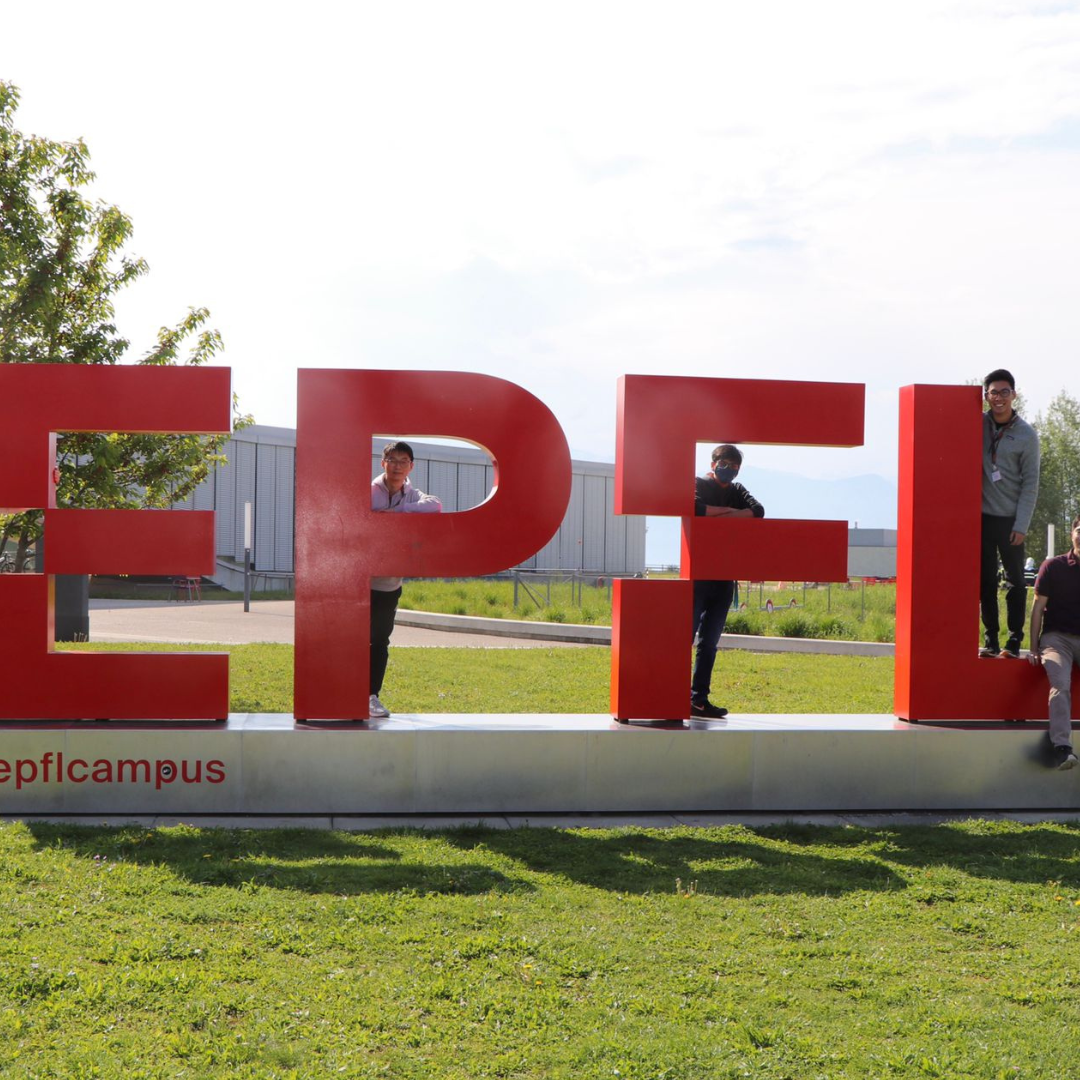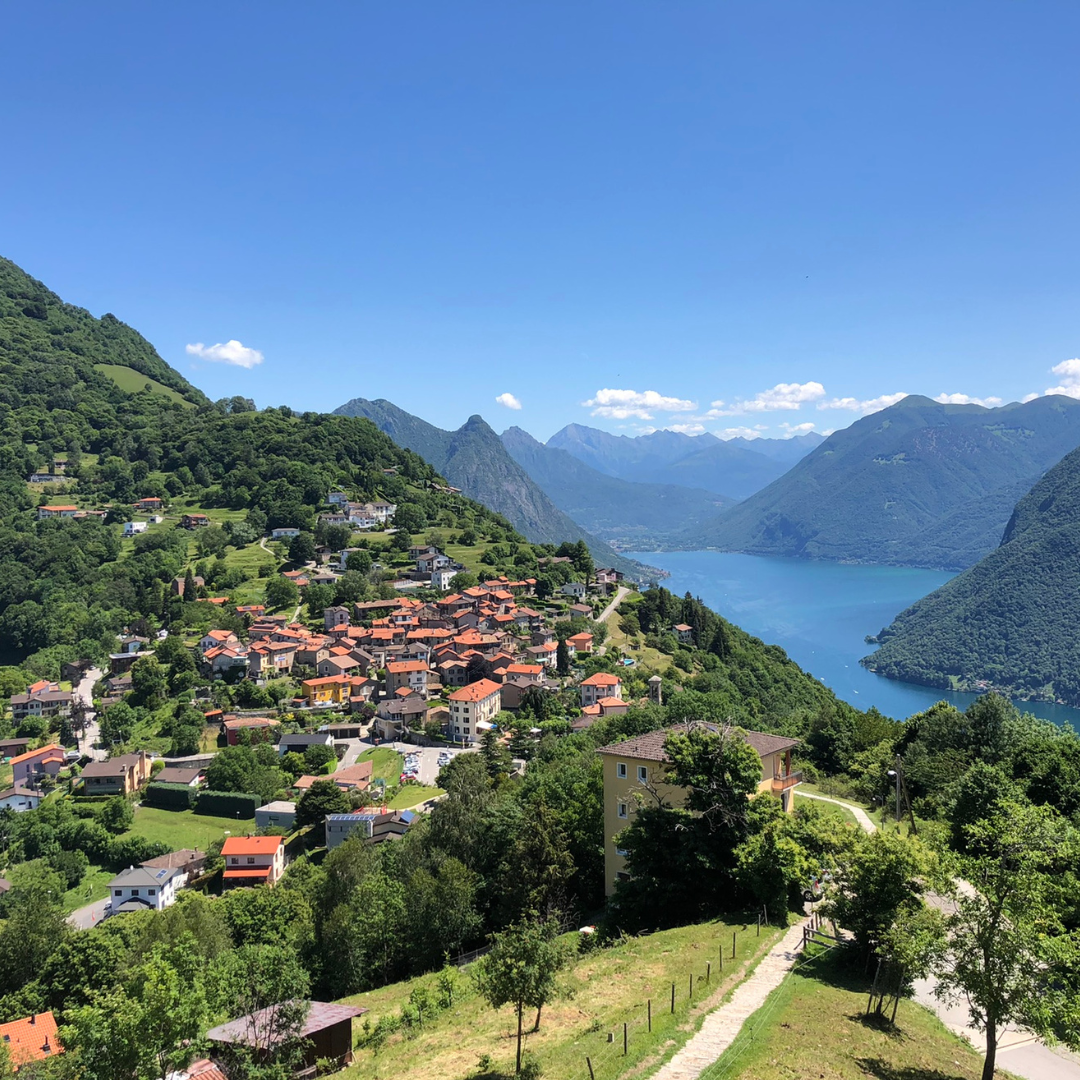Andrew Ding (he/him) is a fourth-year Geomatics student in the Faculty of Environment. He is the recipient of the 65th anniversary award for International Excellence. This award marks the 65th anniversary of Co-operative Education at the University of Waterloo. Andrew takes us back to his co-op term in Switzerland and shares how he is shaping a sustainable future for himself and the world, one co-op at a time.

Work term #1: Geospatial technician at Environment and Climate Change Canada. He derived metrics for critical habitats and created an interactive dashboard to present these metrics. He also conducted analysis on vegetation levels of migratory birds used in a research publication.
Work term #2: Engineering and planning student coordinator at Region of Waterloo. He rehauled the design of the Regional Water Network map, conducted data analysis to improve runtimes of the regional water distribution model, and co-ordinated with regional planners to review and process development applications.
Work term #3: Research intern at École polytechnique fédérale de Lausanne (EPFL). He worked with Professor Mathias Lerch in the Urban Demography lab to conduct exploratory spatial analysis of census and demographic data in developing countries to answer a research question in a future publication.
Major project
“I developed a script to use my methodology with census data and output from generated maps to outline functional urban areas and determine if it is reasonable for certain areas to determine the whole population.”
“I think the methodology is quite simple. I mean, compared to what my professor had before, what I created actually works reasonably well. And Professor Lerch and I are working on a paper to publish this.”

“The first step of this project is just to figure out where the people are and where they were in previous years to see how the population changes over time.”
“From this, we are able to get more information so the professor can use my methodology to find what drives interactions and social demographic consequences of this migration.”
“We are only in the early stage of this entire project. But first we have to collect the data to then figure out where the people are.”
Q&A with Andrew

How were you feeling about going international? Was it worth it?
“It is 100% worth it!”
“I'm very passionate about geography and I think that interest also ties to visiting different countries and seeing different cultures, landscapes, foods, etc., too.”
“This was the first flight I actually took by myself. Going from Toronto to London to Switzerland, trying to catch my connecting flight, making sure everything is okay, going to Switzerland, trying to figure out how to get on trains to go to my city and figure out where the place I was renting was.”
“I actually enjoyed it. Once you get past that initial fear and you realize, ‘Oh, I'm doing okay.’ That was a really good feeling.”
“I became a lot more comfortable living in a foreign country. I don't typically get homesick so that was not much of an issue. But to keep busy I made it a goal for myself that every weekend I wanted to travel somewhere, either within Switzerland or outside of Switzerland.”
“I spent a lot of time planning trips, making sure every weekend was covered with a hike or going outside of Switzerland, to Croatia, Italy, France, Belgium, Netherlands and Hungary.”
“Just being in Europe, you can travel around so easily and you can see so much in a small geographic area. So I really enjoyed it.”
“The weather is a lot more unpredictable due to the mountains in Switzerland but the sunny days are very pleasant and the lakes and the mountains are so beautiful."
What did you enjoy about your company’s culture?
“They have a lot more of a relaxed work culture in Switzerland. I had a really close relationship with the professor I was working with, especially since our team was relatively small.”
“At the beginning, we were only a team of three. And then by the time I left, I think it was a team of five. But since they were so small, I was able to talk to my prof whenever I needed help. I could just go to his office and ask a quick question and he would always be available and eager to help me.”

“He would also take me out for coffee and spend a few hours just chatting and bonding over our interests in demography and geography.”
“I love working with my professor. He was a very chill person to work with and I really enjoyed my time there.”
How do you navigate workplace pressures?
“With my work environment, I was not too stressed, especially since I was given a lot of free rein on my exploratory analysis. I didn't really have any hard deadlines other than my presentation at the end of the term. It’s just hard to be stressed in Switzerland.”
“I could just go on a hike or take a train and explore a new city. I think doing those things help to distract yourself from work which is probably a coping mechanism if I am stressed, but generally, I was not.”
In addition, Andrew applied for and received grants to help with his international co-op expenses which helped with financial stress. This included a scholarship for living fees and two scholarships from Waterloo for the President's international experience award, and the international experience award.

What did you learn that helped you towards your career goals?
“It gave me a glimpse into research. There are pros and cons to research work and I was able to discover I don't really enjoy reading literature content and taking notes on that. That's not really my cup of tea.”
“I understand it’s necessary to get background knowledge, to see the current methods and literature to see how you can use that information to create your own methods. I do recognize it's important, it's just not really something I enjoy.”
“Something I do enjoy about research is exploratory analysis, like just trying things, getting feedback and then trying again.”
“I love visual representations of data, especially maps. I'm passionate about geography. So making my scripts, making it work, running it, and just seeing it spit out maps over and over again, and then looking through it for anomalies, to see if my methodology work. Does it seem reasonable? I think that was also a very enjoyable experience.”
Do you have any advice for other co-op students?
“I think you should really just find co-ops you would enjoy.”
“I think a lot of people will chase co-op for a job title, a certain company or a certain salary. Those are definitely important factors that you could consider but I think people should ask if they would be genuinely interested in the work they would be doing. Would you be passionate, because I think that's really what gets you up in the morning, and it makes the work a lot more enjoyable.”
“Even though you might be earning money, if you're miserable, I don't think it's really worth it.”
“In terms of international co-ops, one motto I had this year is ‘just make it happen’.”
“I wanted to work internationally to travel the world. So I put the effort in to make it happen. I put in applications to many co-ops in different countries and I even applied for my co-op next term to be in New Zealand because I didn't want to go back home just yet.”
“I went for it. Just try going for these opportunities, you really don't what’s going to happen and it's okay.”
What’s next for you?
“I currently have a co-op job for next semester. I’ll be working in Toronto at a transportation consulting company as a spatial data analyst.”
“I’ve only worked for the government so I really wanted to try working for a private company and see the difference and maximize my work experience. Try one term research, a couple of terms government and now private.”
“For my next co-op, I will be considering either going back to Switzerland, maybe extending my co-op term with my current employer if I really enjoy it or looking elsewhere.”

“I think I will put an emphasis on international co-ops, especially for the experience you can get living abroad. I think it's very valuable.”
“I think I want to continue my academic career and I'm quite set on going back to Europe for my master's degree.”
“One of my goals is to have a job where I'm able to contribute to the world, make the world a better place.”
“My dream job in the future would be working with the United Nations in Geneva, Switzerland as a GIS analyst trying to solve problems. I would like to figure out how we can improve rural development through demographic data or geographic data.”